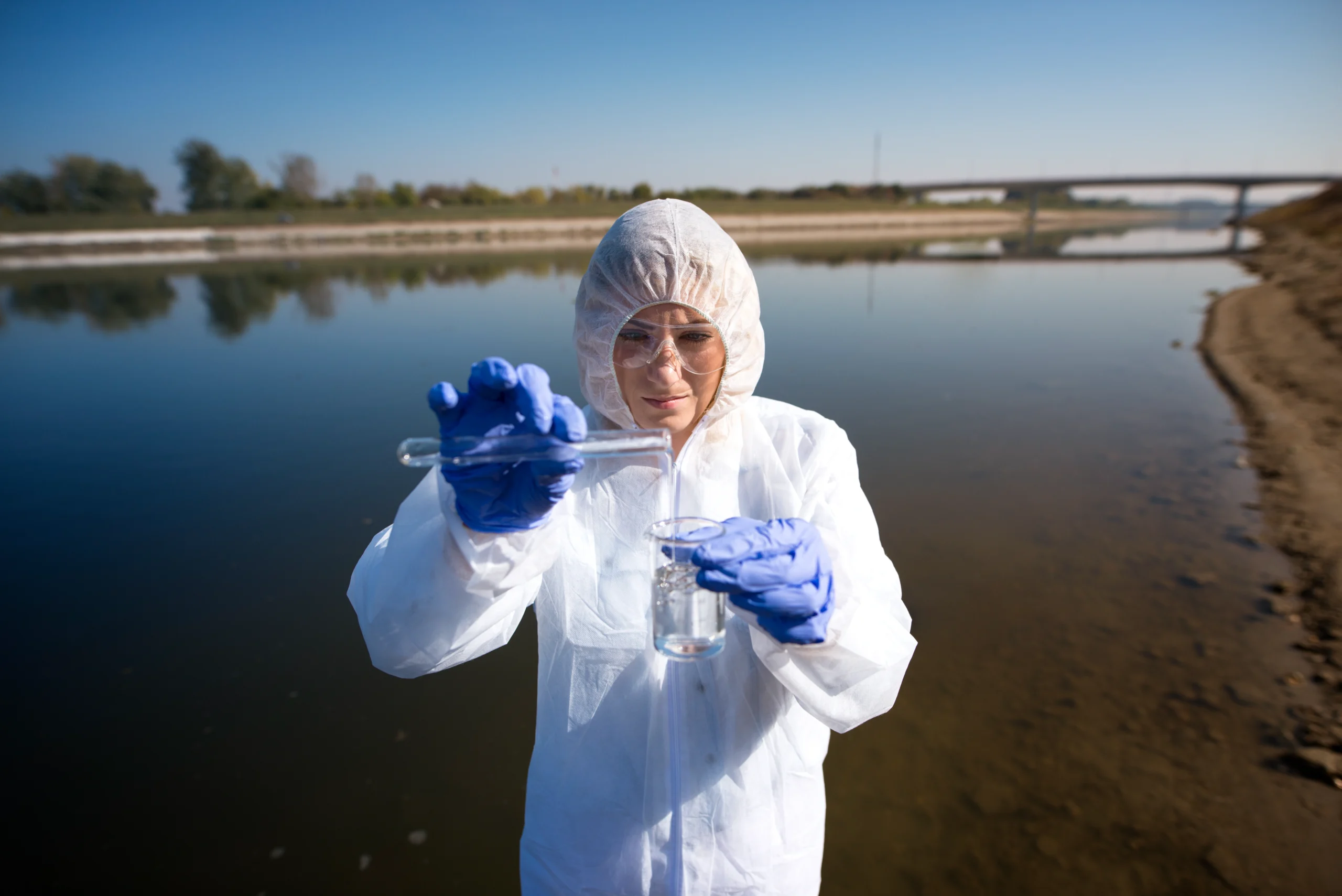Now is the time you must pay close attention to nature-related issues, such as septic waste and wastewater, especially with the exponential population growth happening all over. You can see that there is a global water crisis going on like never before. There is no doubt that the treatment of wastewater, aka management of wastewater, is a crucial aspect for our modern-day civilization. It is the need of the hour to be precise. Therefore, wastewater treatment matters a lot, and all necessary initiatives must be taken to ensure it is promptly done. In this article, we will take a closer look at the different facets and solutions related to this critical subject.
What is Biological Wastewater Treatment?
The significance of effective and real wastewater treatment can never be overstated. The need for nature-friendly and sustainable solutions is paramount. In this context, biological wastewater treatment has already emerged as an efficient and practical approach to address this gruesome challenge.
Biological wastewater treatment is a procedure that uses microorganisms to break down pollutants and organic matter that are present in wastewater. Microorganisms such as fungi and bacteria play a vital role in this biological water treatment process. They help you convert all the harmful and toxic elements present in the wastewater into lesser harmful substances.
Advantages of Biological Water Treatment

The advantages are many, but before we dive straight into them, let’s take a look at the various processes by which you can achieve them.
- Activated Sludge Process
You can also call the activated sludge process as nature’s cleaning symphony. This process is carried out in a biological wastewater treatment plant. To initiate this wastewater treatment method, you need to first introduce the contaminated water to a mixture of different microorganisms called the active sludge contained in an aerated tank. The active sludge then breaks down the organic matter present in the wastewater through respiration. This process ultimately leads to creating cleaner effluent. You can effectively and successfully remove various pollutants from the wastewater using this highly cost-effective method.
- Trickling Filter System
In the trickling filter system, you use a synthetic medium, like a bed of rocks. This is to hold a biofilm of microorganisms. You distribute the polluted water over this medium, which then trickles down and hence the name. The organic matter is consumed by the microorganisms as the wastewater trickles down. The trickling filter process is very popular, mainly for its minimal energy requirements and simplicity.
- Sequencing Batch Reactor Process
The Sequencing Batch Reactor, aka SBR, is an eco-friendly water treatment process that treats the wastewater contained in a single tank. The treatment process is carried out through various stages. They are:
- Filling
- Reacting
- Settling
- Decanting
- Idle periods
The flexibility and the unique design of SBR wastewater treatment systems are considered very helpful. This is because there is only minimal sludge production, effective separation of the nutrients is achieved, and the whole operation is much simpler.
- Membrane Bioreactor Process
The Membrane Bioreactor, aka MBR process, involves a biological wastewater treatment method that is carried out with membrane filtration and hence the name. The MBR process helps you achieve a higher effluent quality. This method of treatment of waste water makes use of a membrane barrier for separating biomass from the treated water. MBR wastewater treatment is considered a more compact and efficient process.
Now, the various benefits of biological wastewater treatment are:
- Cost-effectiveness
One of the primary advantages of getting a biological water treatment is that the procedures incur only minimal operational costs. Credible published research shows that the operation costs for all eco-friendly water treatment methods are much lower when compared to the conventional chemical wastewater treatment procedures.
- Environmental benefits
All biological wastewater treatment systems considerably lower all the harmful pollutants and promote a more sustainable approach. Eco-friendly wastewater treatment systems contribute to minimal greenhouse gas emissions. The best part is that these eco-friendly systems help you in recovering energy as biogas.
- Versatility & scalability
Another important advantage of biological wastewater treatment plants is that you can use them for various scales of operation. For instance, they are suitable for operating small-scale decentralized systems located in rural areas. Similarly, you can also effectively use them as large-scale municipal wastewater management plants with which you can treat up to millions of gallons in a single day.
Role of Wastewater Treatment Plants
The various roles of a biological wastewater treatment plant are as follows:
- Collecting and effectively treating wastewater generated by industrial operations, residential facilities, and commercial enterprises.
- Removal of the solid matter via primary treatment.
- Using microorganisms for breaking down and removing dissolved effluents via the secondary wastewater treatment step.
- Removal of nutrients such as phosphorus and nitrogen that lead to harmful algae blooms.
- Disinfecting disease-causing microorganisms.
- Contributing to nature sustainability through waste reduction, energy production, and the assurance of a cleaner, healthier, and safer environment.
Northamps: Leading the Change in Biological Treatment
Incorporated in 2015, Northamps has garnered an immense reputation for being a reliable name in providing sustainable waste management solutions. Now, with many years of expertise, professionalism, and technical perfection, they are being counted as a trusted service provider. Especially in the arena of biological wastewater treatment. Northamps is all geared to take the game to a whole new level by using state-of-the-art machinery and impeccable biological wastewater management strategies.
Future of Wastewater Management
The future of biological wastewater management looks more promising and holds more potential than ever before. The goal is to implement and achieve more sustainable and nature-friendly solutions. The latest innovative technical advancements are poised to redefine the efficiency and affordability of biological wastewater plants. You can rest assured that these much-needed initiatives will lead to a more sustainable future.
Conclusion
To conclude, we can say that modern biological wastewater treatment methods and strategies guarantee a much more eco-friendly approach. A more reliable approach that can help us tackle the ongoing wastewater management issue with increased certainty, efficiency, and practicality.


